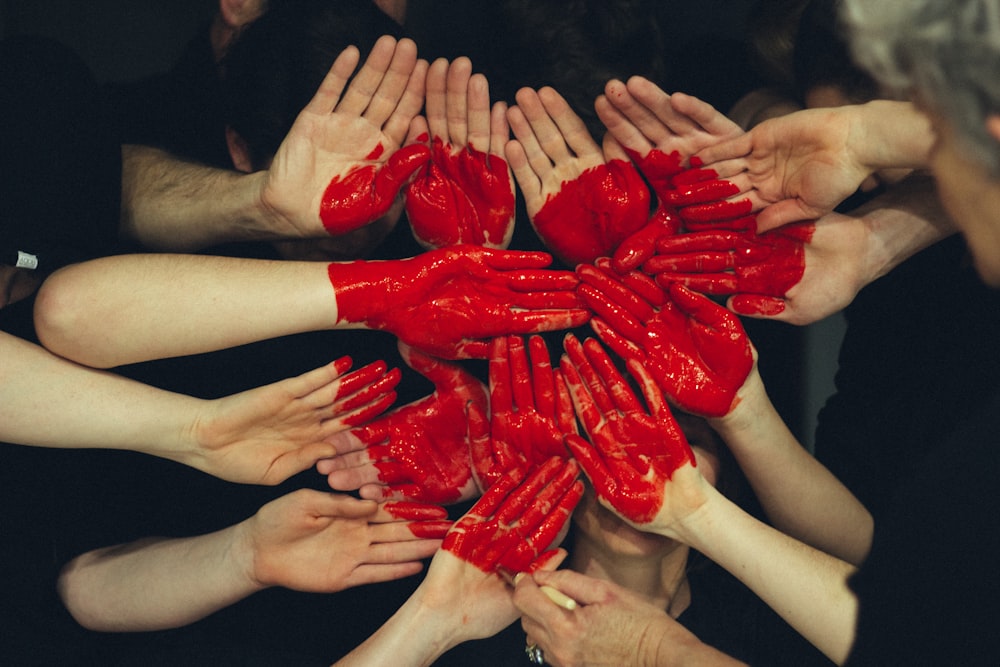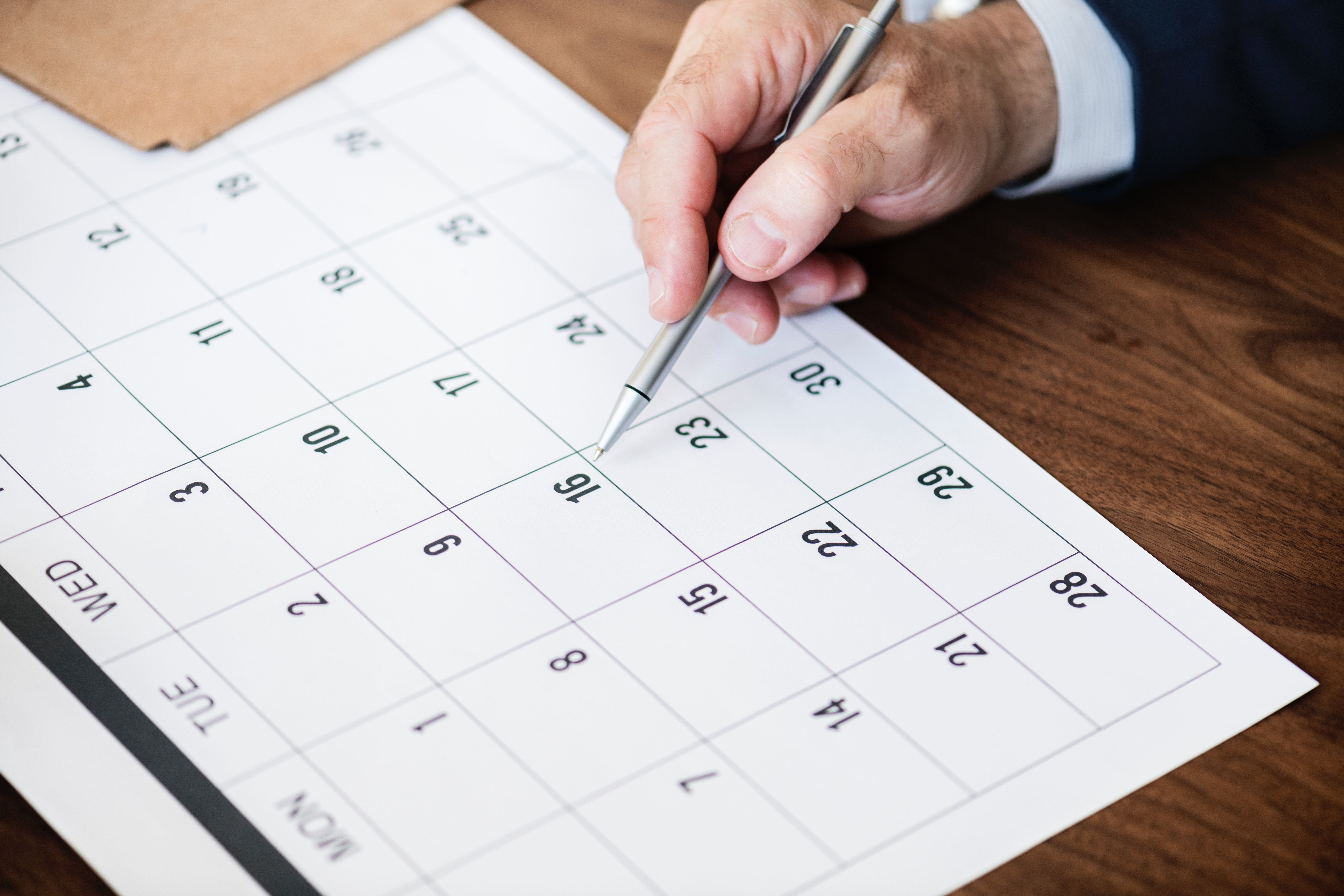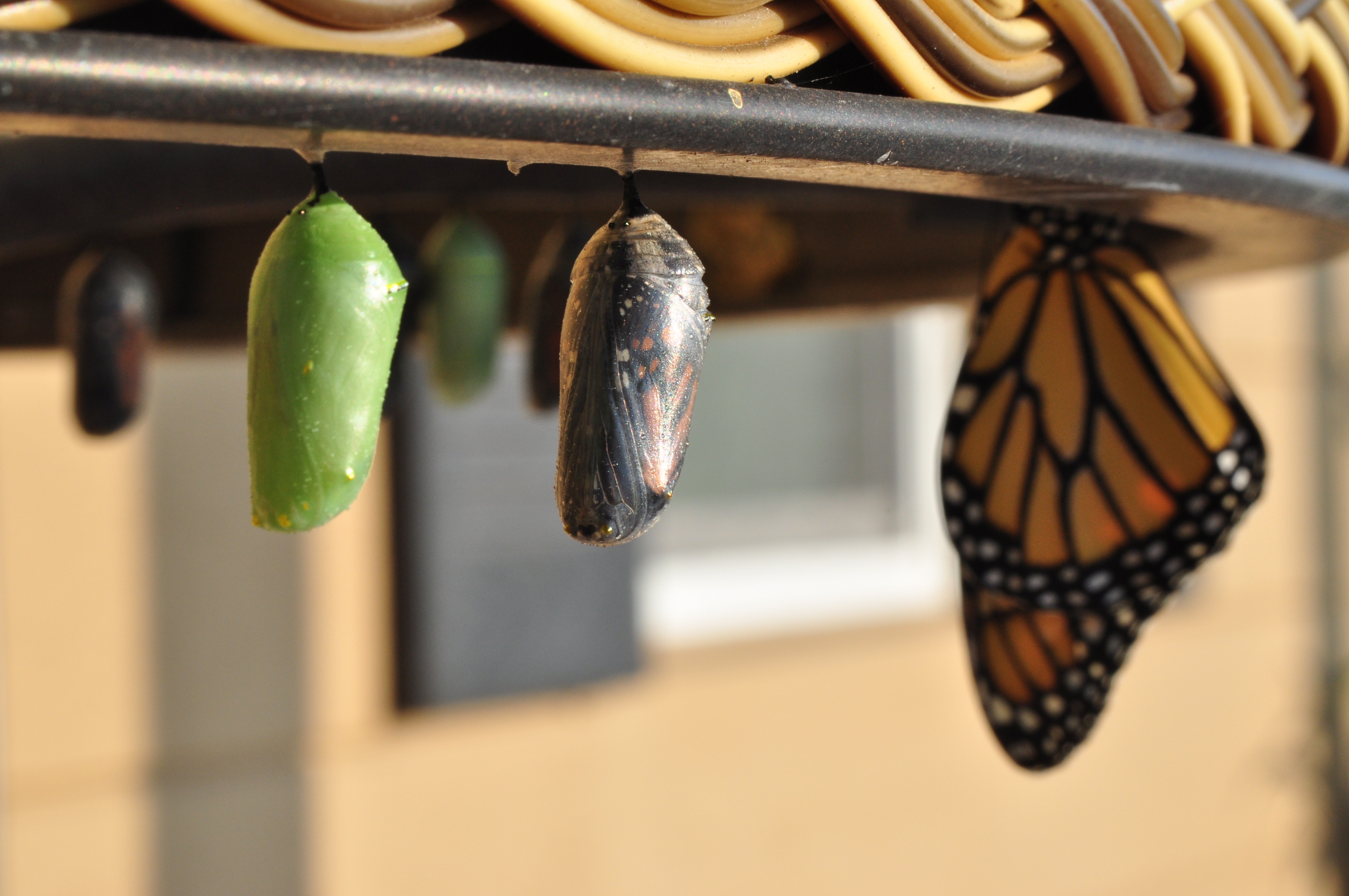How do you know if graduate school is the “right” option for you? To be honest, this is probably one of my favorite things to discuss with students. I light up when I hear a student say, “I’ve been thinking about graduate school…”
“I’ve been thinking about graduate school, but I’m not sure where to begin.”
“I’ve been thinking about graduate school and I want to go out of state, but I’m not sure how to pay for it.”
“I’ve been thinking about graduate school and I was hoping we could meet to discuss it.”
So, I thought sharing some helpful information about how to know when you’re ready for graduate school and how to start the process could be of use to my students as well as others.
For the record, I loved both of my graduate programs. I had exceptional faculty members, who were supportive, and peers that became close friends (many of whom I’m still in touch with today). And still…
It.
Was.
Hard.
In fact, I very seriously considered quitting my doctoral program in 2017 after my dissertation proposal was denied by my committee. But I stuck with it and I graduated in 2019. And honestly, I wouldn’t change a thing, because those difficulties made me a better scholar and a more compassionate educator. So, if you’re considering graduate school (or just interested in learning more about the process), please read on.

How do I know if graduate school is right for me?
You might be considering graduate school for a variety of reasons, but there’s some clear indicators to know if graduate school is right for you. First of all, you should consider whether pursuing graduate school will help you reach your career goals. If you’re not sure, one way to check is by looking up individuals who have your dream job and viewing their credentials. If you’re not sure what your dream job is, fear not! Try looking at careers in which you could possibly see yourself. You can also search the most common career opportunities by specific degrees. For example, search “What can I do with a Master’s Degree in ______________?” and see what comes up. While this will not provide an exhaustive list (because individual career paths always vary), it can still give you an idea of the job options available with a particular degree.
The second, and perhaps most important consideration, is to ask yourself if you’re intellectually ready for graduate school. If you love learning, are enjoying (or have enjoyed) the courses in your major undergraduate program, and are looking to be challenged at a deeper intellectual level, then graduate school may be perfect for you. If this doesn’t ring true, you shouldn’t rule out graduate school completely, but you might want to take a break from school before starting a graduate program.
Graduate school is not easy. Whether you choose to engage in a graduate program at full or part time status, you can expect that it will be a demanding part of your life. If you work and/or have family commitments, you should consider whether you have the time necessary to complete a graduate program successfully. Additionally, if you’re considering seeking a graduate assistantship, you should expect your combined commitments (to your classes and research or teaching) to take up most of your time. Chances are, you will find it necessary to give up some evenings and weekends to fulfill the work necessary to complete a graduate program.
According to a report from the Council of Graduate Schools (2008), 56.6% of students who entered a doctoral program completed it within 10 years. That means 43.4% of individuals failed to complete their program. I’m not saying this to scare you away from pursuit of graduate school, but rather, to provide you with an honest and realistic account of what to expect. If you enter graduate school fully prepared for the realities of it, you will have a much greater chance of success.
If you’ve read to this point and you’re still considering graduate school, that’s great news. Now, I’m going to shift to a discussion of how to begin your search for a graduate program and later, we’ll talk about how to begin the application process.

How do I choose what to study?
Of course, you could choose to extend your undergraduate studies directly into your graduate program. This means that if you studied Communication at an undergraduate level, you could pursue a Master’s degree in Communication as well. However, you’re not limited to this option. In fact, the possibilities for graduate study are nearly endless. It certainly helps to choose a closely related, or similar field. For instance, if your undergraduate program is in the field of social sciences (e.g., Social Work, Sociology, Psychology, Leadership, Communication, etc.), then you will have a greater likelihood of acceptance into a graduate program that is also in the social sciences.
If you wish to make a more dramatic shift, it’s not impossible, though you may need to take additional classes at the undergraduate level in order to fully prepare you. Additionally, some programs have pre-testing requirements. The MCAT is specific to advanced medical degrees and the LSAT is specific to law degrees. Outside of these, many programs, today, require GRE completion as part of the application process. Taking the appropriate test for your intended field of study is an important first step since it will help you identify programs that are available to you.
How do I choose a program?
Once you know what you want to study, you can begin looking at specific programs. If you’re open to relocating, a lot of possibilities are available to you. When I started my search for Master’s programs, I looked for opportunities both abroad and locally, so keep an open mind at this point and dream big. Look at things like the courses you will be required to take as part of the program. Do they sound interesting to you or even possibly excite you? Look at the faculty in the department and what they study. What are their most recent publications about? In most graduate programs, your advisor will closely oversee your own research, so it helps if there is at least one faculty member who studies something that is of interest to you and/or with whom you could see yourself working.
Additionally, if you are interested in being a graduate assistant, you’ll want to dig a little deeper to see if the department has offered assistantships in the past and to see what those roles entail (research or teaching). You may not be able to find this information online, so connect with someone in the department and see if it’s possible to meet with the Graduate Chair and/or current students in the program to learn more. If possible, I strongly recommend going to the campus to see the physical space and meet with some of the faculty before you even apply. However, this isn’t always an option, so meeting current students or faculty via Zoom could be a good alternative.
If you’re looking for an online degree program, or for something that offers flexibility for working professionals (like more evening classes), then consider reaching out to current students or the Graduate Coordinator (sometimes this is also the Graduate Chair and sometimes it’s a separate role). While browsing programs on the web can give you some information, like the program mission and the specific classes, it’s hard to learn much about the culture of the department without actually talking to its members. For instance, you may want to know if faculty are responsive and open to meeting with students regularly. Or, you may want to know if the students have a writing group to help support and hold each other accountable.
Overall, don’t be afraid to dig in a little deeper to learn about a program and its home department. This will be a worthwhile endeavor to help ensure you’re applying to the right program(s) for you. Additionally, inquiring and visiting with existing members could help put you on their radar, so that they’re looking for your application when it comes in, because faculty want to work with highly engaged, enthusiastic students.

When and how do I apply?
Most graduate programs begin in the fall semester (August) and have application due dates between November and February in the previous academic year. This is a strategic approach by program coordinators to help ensure their new graduate students are taking the most important introductory courses immediately. Additionally, limiting new students to a single semester can help develop student cohorts and these cohorts tend to have a higher rate of degree completion.
I usually advise students to submit applications to three different programs. Doing so will help ensure the likelihood of your acceptance to at least one program. If you’re accepted to multiple programs, you can make a decision based on additional factors like whether a graduate assistantship is being offered, appeal of the location, and so on.
While you can use the same standard cover letter for all of your applications, you should customize them for each application. For instance, be sure you mention the specific program name and the university. Beyond this, you should also name specific faculty members (at least one, but ideally up to three) with whom you could see yourself working. Support your assertions by mentioning recent publications of these faculty members that resonate with you and spark excitement at the prospect of working with them.
Who should I ask for recommendation letters?
A major component of your graduate school application is the recommendation letters. Undoubtedly, the best individuals to write your recommendations for graduate school are your current or past professors. Think about faculty members you know well and who have seen your work firsthand. It may be faculty advisors for organizations of which you’ve been a member and/or have volunteered. Additionally, you may want to ask your adviser or faculty with whom you’ve completed multiple courses. Just keep in mind that you want individuals who can speak to your best qualities, so it helps if you earned a good grade and/or completed an exceptional project. Additionally, ask well in advance to give them plenty of time. Most faculty members will not mind providing letters for multiple programs, because they just have to change the name of the university, so you can ask the same three to five people to provide letters for all of your applications.
It helps a lot if you’re organized. Specifically, know the programs to which you plan to apply and provide the list to your faculty members when you ask for their recommendation. It’s best to make such requests via email, so that there’s a record of your request (it also decreases the likelihood that your request will be forgotten during a busy day). Usually, I will ask students for their full resume and a few points that they want me to highlight (i.e., their best skills/strengths), so be prepared to provide this information. Lastly, if the timeline is tight (or even if it’s not), you may be asked to draft your own recommendation letter and then, they will edit and sign it. Just know that this is an acceptable practice and you should be prepared to do so.
Why would I want to be a graduate assistant?
There are a couple of really good reasons you may consider looking into graduate assistantships. First of all, this is a savvy way to pay for your graduate degree. Typically, a full time graduate assistant position will cover your tuition and provide a (small) stipend. You will likely be responsible to cover the cost of fees (for my program at a state college, this was about $1,000 per semester) and you will have to pay for books as well. The stipend is not usually enough to fully cover the costs of living, so you may need to find another means of covering your experiences (like living with roommates or taking out students loans).
Additionally, a graduate assistantship will provide you with valuable work experience and allow you to learn from your supervising faculty members. Assistantships are offered in one of two areas: teaching and research. For a teaching assistantship, you may be expected to teach 2-3 classes for your department each semester. For a research assistantship, you will likely be working closely with a faculty member to conduct research relevant to their area of study (e.g., writing literature reviews, writing grants, collecting data, analyzing data, writing research reports, etc.).
This real work experience is invaluable and gives you an insider’s perspective of what it’s like to work in academe. And, I have to tell you that, even though I had this huge advantage, I still had a lot to learn about my faculty role when I was hired into my current position. However, having that prior teaching experience undoubtedly gave me an advantage against other job candidates because I had already been teaching at a university. I had student evaluations to help demonstrate my competencies, had earned a teaching award, and had colleagues who could attest to my work ethic.
So, is it worth it? Overall, yes. Assistantships are demanding, and typically don’t pay very well (although they generally pay better than adjunct positions), but I was well-prepared for a career in academe. And, as an added bonus, I remain close with some of the other graduate assistants from my department – they are friends for life. Honestly, I don’t know how I would have made it through graduate school without them and sometimes I actually miss sharing an office with two other graduate assistants (I seriously had the BEST office mates)!

What happens if my application is not accepted?
Once you’ve applied, it’s just a waiting game. It will likely be a month or longer before you hear back about your application, so try to be patient. Recently I had a student who didn’t hear back about an application until late June and she needed to move across the country in order to start classes in August. If it seems like it’s been unusually long (you can check their website to see when you can expect to hear back), you can certainly reach out to the Program Coordinator to inquire about your application.
If your application is declined, it doesn’t necessarily rule the program out. If feedback about your application is provided, view it and see if the items are things that can be improved prior to the next application deadline in a year. In the meantime, you may be able to enroll as a non-degree seeking student and start taking classes in that department. Just taking one or two classes in the program before the next application cycle can help you connect with faculty and demonstrate that you are, in fact, a good candidate for the program. You can also visit with the Graduate Coordinator, Graduate Chair, and/or students already in the program to find out what you can do to potentially improve your application.
What programs do I recommend?
Students frequently ask me about the degree programs I completed because I speak so highly of them. I completed both of my graduate degrees at the University of Nebraska – Lincoln. Truly, it was the perfect fit for me and I’m still in contact with many of the faculty members there today. You can learn about the graduate programs offered by the Department of Agricultural Leadership, Education, and Communication on their website. I completed my M.S. in Leadership Education and my Ph.D. in Human Sciences with specialization in Leadership Studies.
Additionally, within my own department at the University of Nebraska – Kearney, we offer a fully online M.A. in Public Communication.
Still have questions?
Comment below or setup a time to meet with me. 🙂
P.S. Here is a very satirical (but very funny) video about pursuing a graduate degree that always makes me laugh. One of my office mates shared it with me during my first year in my doctoral program and it’s always stuck with me.
So you Want to Get a PhD in the Humanities
Photo Credits
Application Photo by Markus Winkler on Unsplash
Books Photo by Sharon McCutcheon on Unsplash
Graduate Photo by Andre Hunter on Unsplash
People Working at Computers Photo by Annie Spratt on Unsplash
Woman Looking at Road Photo by Vlad Bagacian on Unsplash
References
Sowell, R., Zhang, T., & Redd, K. (2008). Analysis of baseline program data from the Ph.D. completion project. Council of
Graduate Schools. https://cgsnet.org/sites/default/files/phd_completion_attrition_baseline_program_data.pdf



























